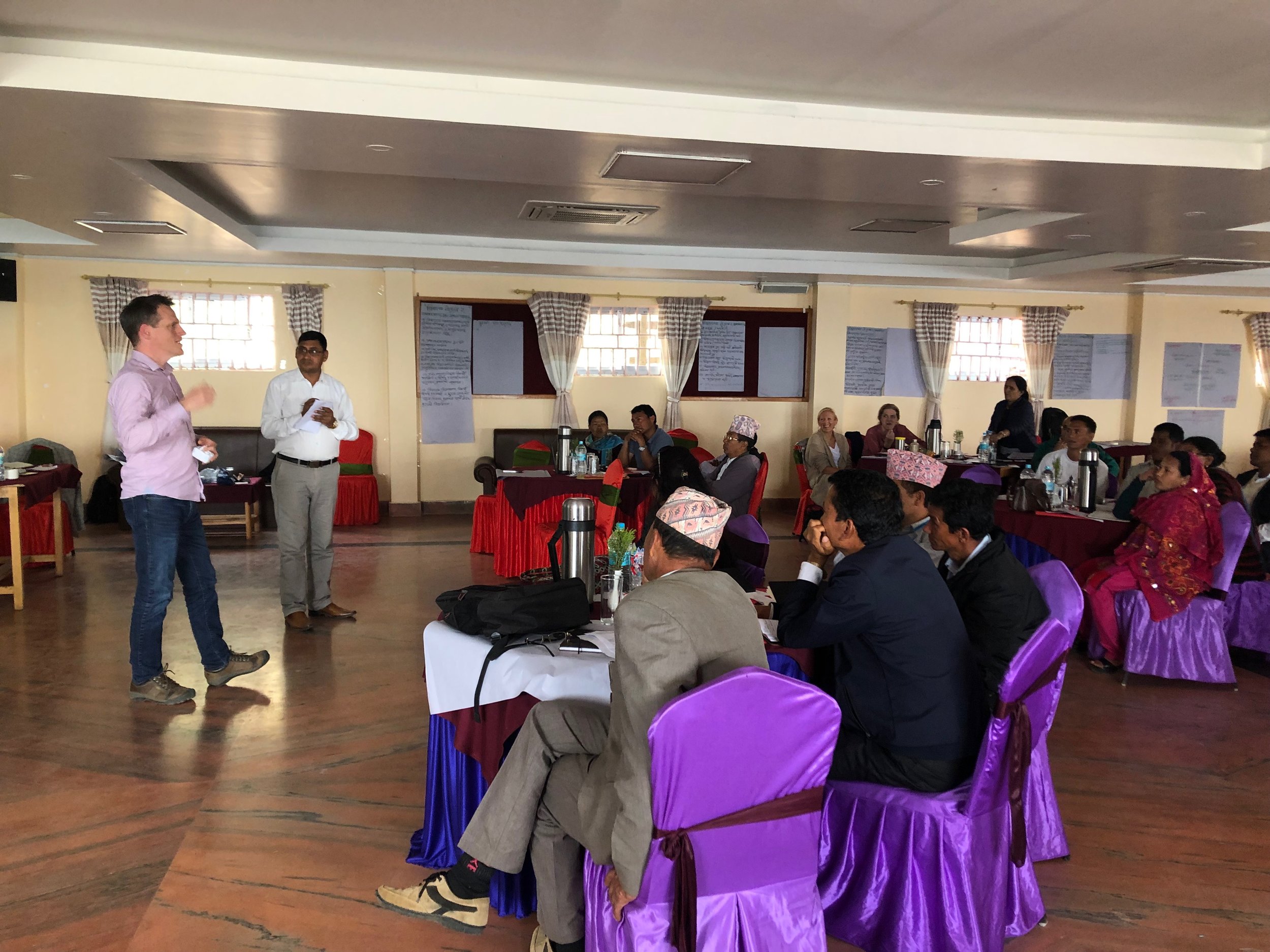Informed International is using a Principles-Focused Evaluation approach to guide the Developmental Evaluation (DE) for Save the Children’s School Leadership and Management (SLaM) model. Guiding principles give direction to what should be accomplished by the project. Guiding principles are helpful in complex interventions which need to be adaptive and responsive but also organized around some clear ways of navigating decisions and action. In the face of complexity, guiding principles provide grounding and orientation on how to proceed.
Michael Quinn Patton[1] has established the GUIDE Framework for effective principles:
Guiding: A principle is perspective. It provides advice and guidance on what to do, how to think, what to value, and how to act to be effective. It offers direction. The wording is imperative: Do this. The guidance is sufficiently distinct that it can be distinguished from contrary or alternative guidance.
Useful: A high-quality principle is useful in informing choices and decisions. Its utility resides in being actionable, interpretable, feasible, and pointing the way toward desired results for any relevant situation.
Inspiring: Principles are value-based, incorporating and expressing ethical premises, which is what makes them meaningful. They articulate what matters, both in how to proceed and the desired result. They should be inspirational.
Developmental: The developmental nature of a high-quality principle refers to its adaptability and applicability to diverse contexts and over time. A principle is thus both context sensitive and adaptable to real-world dynamics, providing a way to navigate the turbulence of complexity and uncertainty. In being applicable over time, it is enduring (not time-bound), in support of ongoing development and adaptation in an ever-changing world.
Evaluable: A high-quality principle must be evaluable. This means it is possible to document and judge whether it is actually being followed, and document and judge what results from following the principle. In essence, it is possible to determine if following the principle takes you where you want to go.
Principles will help the SLaM team determine the way forward at forks in the road, providing direction rather than detailed prescription, so that there is ample opportunity to adapt to different contexts, changing understandings, and varied challenges. Furthermore, the established principles can be evaluated for both process (implementation) and results so that their hypothetical effectiveness and relevance can be tested. For example, if SLaM establishes head teacher empowerment principles, the project can be evaluated to document how the principles are being adapted in different cultures and among head teachers with different characteristics, including age, sex, and size of school.
Principles-Focused Developmental Evaluation Workshop
SLaM Inception Workshop participants
As part of the April 2019 inception workshop in Nepal, Informed facilitated a session with stakeholders from government, NGOs, head teachers, and school management committee members to develop guiding principles as a first step in the SLaM developmental evaluation. Over three days we used a range of tools to engage the workshop participants, including reflections on their roles as leaders and managers in the school system, successes they experience, and barriers they struggle to overcome. Participants also reviewed international and local research on effective school leadership and management, integrating these findings with their own experience and understandings. The GUIDE Framework was used to bring all these pieces together, an essential and helpful tool to direct the conversation and ensure the goal of creating meaningful and implementable principles for the school leadership and management program was achieved.
SLaM Principles
Developing Principles during the SLaM Workshop
During the initial steps for formulating the principles, workshop participants identified focus areas where principles should be emphasized. After some consolidation, the focus areas came to ten in total. Having identified those areas, the Informed facilitators supported participants to use the GUIDE framework to develop contextually appropriate principles. The focus areas and the associated principles are listed in the table below:
| FOCUS AREA | PRINCIPLE |
|---|---|
| Learning & Wellbeing | Children's learning and wellbeing is at the center of the work |
| Distributed Leadership | Ensure meaningful participation of all concern stakeholders to develop common vision, plan and implement accordingly for promoting quality education |
| Resources | Manage and properly utilize resources to promote educational activities in school |
| Political Neutrality | Maintain political neutrality in all educational activities and decision making for the school |
| Inclusive Education | Ensure and inclusive learning environment for all, and prevent any discrimination based on culture, gender, religion, language, geography, or disability |
| Teachers’ Professional Development | Seek to understand and timely respond to factors that influence teacher performance |
| Values | Follow and demonstrate accountability, transparency, integrity, and dedication |
| Safe & Child-friendly Schools | Promote safe and child-friendly quality learning environments |
| Policy Alignment | Align plans and programs with municipal, provincial, and federal education act and policies |
| Sharing & Learning Culture | Encourage honest sharing and learning among all stakeholders within and between schools |
As a next step of affirming the focus areas and specifics of each principle, workshop participants are using a developmental evaluation tool of journaling to reflect upon the principles in the context of their leadership and management interactions in their local schools. Each person will reflect on their journey working toward achieving principles, to barriers they experience inhibiting progress on the principles and the appropriateness of the principles to their school context. The journaling data will be captured by InformEd during a follow-up workshop, where the data will be used to identify program interventions that emphasize or build upon existing good practices as well as interventions to overcome barriers school stakeholders are experiencing.
[1] Patton, Michael Quinn. 2017. Principles-Focused Evaluation: The Guide.
In the next blog of this series, we’ll discuss journaling as a method for collecting qualitative data during a developmental evaluation process.
Have you ever used journaling as a means of data collection? What are your recommendations for engaging participants in the process?



